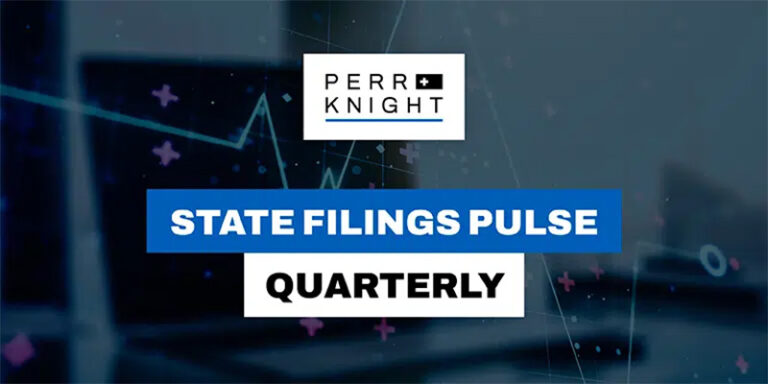MGA Licensing: It’s Not What You Think
- Written By Diane Karis

The term “Managing General Agent (MGA)” is used frequently in the insurance industry – but not always correctly. The roles of MGAs and agents are distinct in their licensing requirements and operational scope. Misclassification is more than just a semantic error. Applying for an MGA license without meeting the statutory requirements – including a signed contract containing the required minimum contract provisions – will cause your application to get rejected.
During our decades of providing insurance licensing support, we have seen many agents make this error—more due to misunderstanding than deliberate misrepresentation. This article outlines the true definition of the term and what is required to become licensed as an MGA.
What is the statutory definition of a Managing General Agent?
MGAs help insurers enter specialized markets without the associated overhead costs. They are granted significant authority by insurers to manage key operations such as underwriting, pricing, and claims settlement.
The NAIC Managing General Agents Model Act outlines an MGA’s statutory definition. According to the Act, an MGA is defined as any person who:
- Manages all or part of the insurance business of an insurer (including the management of a separate division, department, or underwriting office).
- Acts as an agent for such an insurer, known as a managing general agent, manager, or other similar term, who, with or without authority, either separately or together with affiliates, produces, directly or indirectly, and underwrites an amount of gross direct written premium equal to or more than five percent (5%) of the policyholder surplus as reported in the last annual statement of the insurer in any one quarter or year.
- Additionally, the MGA adjusts or pays claims in excess of $10,000 per claim or negotiates reinsurance on behalf of the insurer.
Obtaining an MGA license requires active underlying producer licenses related to the managed products, and the MGA must work with a carrier. If a producer is not yet associated with a carrier, they would not qualify to become licensed as an MGA.
MGA requirements differ by state
Once an agent determines if they meet the statutory definition of an MGA, they must understand each state’s requirements. Not all states offer MGA licensing, and there are different requirements in the jurisdictions that do.
While most states have adopted some version of the Model MGA Act, some may have state-specific statutes and regulations. Some states require MGA licensing for individuals and business entities, others only for business entities, and some only for individuals. For example, California does not offer an MGA license. Texas requires an MGA-specific test to obtain a license. Meanwhile, some states have no requirements beyond a producer license and a copy of a bond or E&O policy. There are also states that do not issue an MGA license, per se, but require MGAs to go through a registration, designation, or appointment process, which is similar to obtaining a license.
On a countrywide basis, approximately half of U.S. states issue actual MGA entity licenses, some have individual MGA licenses, some require the Designated Responsible Licensed Producer (DRLP) to hold an MGA license, and others require either an MGA-specific appointment or a copy of the MGA contract. MGA licensing also requires the participation of both the carrier and the MGA personnel.
It’s essential for MGAs to carefully navigate these requirements, as improper licensing can result in costly regulatory actions.
What’s the difference between a licensed producer and an MGA?
Both producers and MGAs work with insurance policies and serve as intermediaries in the insurance market.
Producers are licensed individuals or entities that sell (market), solicit, or negotiate insurance policies. They bridge the gap between insurers and policyholders. The term “producer” often encompasses both agents and brokers, reflecting their roles in policy distribution. Producers must pass examinations and meet ongoing education requirements to sell, solicit, or negotiate insurance policies. Becoming a licensed producer is generally less complex than MGA licensing.
The main differences between MGA and producer licensing lie in their level of authority and the complexity of their roles and responsibilities. MGAs have a broader range of responsibilities and a more intricate relationship with insurers, which is reflected in the mandated contract requirements between the MGA and the insurer and the volume of premiums generated. Producers focus primarily on distributing insurance products, leading to simpler licensing requirements.
For MGA licensing, an underlying P&C producer license is always the first step – and in some cases, it is the only step.
Becoming a licensed MGA
Many producers don’t need to become licensed as an MGA to keep performing the same professional duties. Producers who think they will qualify as an MGA should speak with their contracted carrier as an MGA relationship creates many additional responsibilities and reporting requirements for the carrier and the producer.
If you’re unsure of the type of license you need, our insurance licensing experts can help. The team at Perr&Knight will evaluate the requirements for your jurisdiction and the type of business you manage to determine the appropriate license for your business activities.
Contact Perr&Knight to learn more about our insurance licensing services and insurance state filings support solutions.





